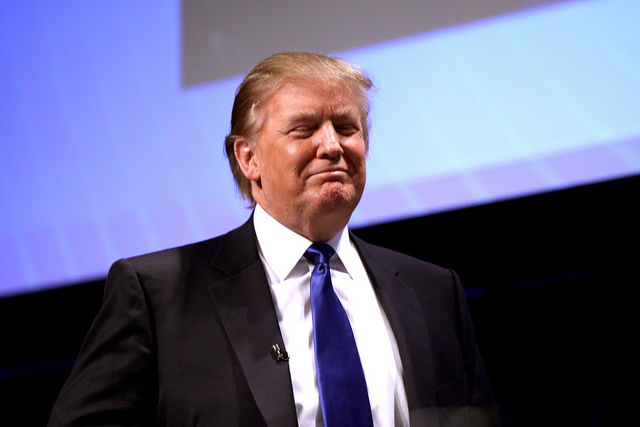
(Photo: Gage Skidmore/ Flickr)
TORONTO — Donald Trump’s envoy to Canada says her president is leading international efforts to persuade North Korea to give up its nuclear weapons arsenal.
Ambassador Kelly Craft offered that assessment as G7 foreign ministers began meetings in Toronto on Sunday on the world’s many peace and security challenges, with the North Korean nuclear crisis and the ongoing tensions with Vladimir Putin’s Russia taking centre stage.
The gathering is part of the regularly scheduled run-up ministerial meetings ahead of the G7 leaders’ June summit in Charlevoix, Que., but its timing is giving foreign ministers a chance to discuss key developments in the North Korea nuclear standoff.
The G7 meeting comes days after North Korea pledged to suspend testing of its nuclear and long-range missiles and close its nuclear test site, and days ahead of this week’s historic summit between North Korean leader Kim Jong Un and South Korean President Moon Jae In.
Trump is also working on his own landmark meeting with the North Korean leader in the coming weeks, after dispatching his CIA Director Mike Pompeo on a secret mission to meet Kim two weeks ago to set the table.
No date has been set, and there is uncertainty about what Trump might be able to accomplish.
“Concerning the upcoming meeting, President Trump is really carrying the water on the North Korea issue,” Craft said in a statement to The Canadian Press. “It’s something we’ve also been working closely with Canada on.”
Trump initially tweeted that Kim’s latest announcements are a sign of progress, though he tempered that assessment with a new tweet Sunday saying there is still a long way to go.
Foreign Affairs Minister Chrystia Freeland co-hosted an international meeting on North Korea in January with Trump’s recently fired secretary of state, Rex Tillerson. Trump has nominated Pompeo as his next secretary of state, but he isn’t in Toronto because he continues to face opposition to his confirmation. Instead, Deputy Secretary of State John Sullivan is representing the U.S. in Toronto.
Freeland made no public comment on North Korea as she opened Sunday’s talks at the University of Toronto. The minister announced that she and the European Union’s high representative for foreign affairs, Federica Mogherini, will co-host a meeting of women foreign ministers in Canada this September.
Freeland also wants the disruptive influence of Russia and the West to be a top agenda item, and has asked Ukrainian foreign minister Pavlo Klimkin to join part of today’s talks, going so far as to host him — along with other ministers — at her home for brunch.
Freeland views the clash of the forces of democracy and authoritarianism as a defining feature of our time and she has singled out Russian President Vladimir Putin as a major disrupter.
Canada and Japan signed a military co-operation agreement ahead of Sunday’s G7 foreign ministers meeting as the North Korean nuclear crisis took front and centre.
Freeland and her Japanese counterpart Taro Kono signed an efficiency agreement Saturday night that will allow each other’s militaries to share equipment during joint exercises in Canada, Japan and elsewhere.
Canada has made the advancement of gender equality a pervasive theme that cuts across all G7 discussions, and the foreign ministers meeting is no exception.
Freeland invited about a half dozen non-G7 foreign ministers to the summit and hosted them at a dinner before their formal Sunday morning meeting. Freeland said her male Japanese counterpart was the only man at Saturday’s dinner table, noting she and the other female ministers, “are often in meetings where we are the only woman, and so Taro got to see a little bit what it was like.”
Freeland and Kono met last month in Tokyo where they affirmed their commitment to keep economic and diplomatic pressure on North Korea to end its nuclear program at this G7 meeting.
Freeland will be joined Monday by Public Safety Minister Ralph Goodale who will lead his G7 interior minister counterparts in talks on terrorism and cyber security.